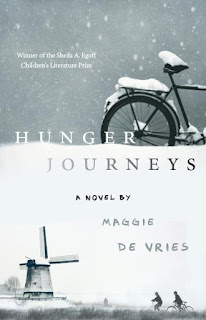How I found this book...
Multi-genre author Elizabeth Gilbert divided her book Big Magic: Creative Living Beyond Fear into six sections: Courage, Enchantment, Permission, Persistent, Trust and Divinity. In 'Enchantment', Gilbert relates a most intriguing tale. Elizabeth Gilbert and Ann Patchett are friends who frequently correspond by letter. During one of these exchanges, they discovered that they were working on remarkably similar novels.
"It was about this middle-aged spinster from Minnesota who's been quietly in love with her married boss for many years. He gets involved in a harebrained business scheme down in the Amazon jungle. A bunch of money and a person go missing, and my character gets sent down there to solve things, at which point her quiet life is completely turned into chaos. Also, it's a love story." (p. 53)It was like their muses had been drinking from the same pool.
Gilbert's interest in writing the story waned as Patchett's imagination was ignited. Gilbert goes on to say that she could have chosen to be very upset about this. But...
'Instead, I chose to regard this event as having been a terrific little miracle. I allowed myself to feel grateful and astonished to have played any part whatsoever in its strange unfolding....I saw this incident as a rare and glittering piece of evidence that all my most outlandish beliefs about creativity might actually be true--that ideas are alive, that ideas do seek the most available human collaborator, that ideas do have a conscious will, that ideas do move from soul to soul, that ideas will always try to seek the swiftest and most efficient conduit to the earth.' (p. 57)For me, this story brings to mind the 'collective unconscious' -- a term coined by Carl Gustav Jung. We think we are separate individuals. But the truth of the matter is that we connected. You are part of me; I am part of you. It's in my best interest to treat you well for in doing so I value myself.
After reading that intriguing story and the engaging plot, of course, I wanted to read Ann Patchett's story. But, these days, I limit my book buying to an on-island church fair and library book sale. (I do prepare a long list for my husband's gift-giving needs -- thoughtful wife that I am). And as parting with well-loved books is as painful as having a tooth extracted, I don't borrow them. So the chances of me reading State of Wonder were slim. I tried to push any thought of the book out of my head. Hmm, yeah, well, good luck.
Thankfully, I did remember it because... What do you think I found at the church fair? You guessed it.
My review...
I began to read--a book that had nearly been written by Elizabeth Gilbert but was written by Ann Patchett-- hoping that the right author had been charmed. (I'm a fan of Gilbert's writing, but I didn't know Patchett.)
'This single sheet had traveled from Brazil to Minnesota to mark the passing of a man, a breath of tissue so insubstantial that only the stamp seemed to anchor it to this world.' (p. 1)
'[T]he big chair took her in its arms, tilted her back, and told her repeatedly to rest.' (p. 51)From page one, I was charmed by Patchett's finely crafted sentences.
The story trickled out drop by drop like water from a faucet.
I see similarities in setting and, at times, tone between State of Wonder and Heart of Darkness by Joseph Conrad.
'[O]n a boat...down a river into the beating heart of nowhere.' (p. 163)
'Mr. Fox stood on the dock and stared at Swenson and stared at the entire flaming tableau that spread behind her.' (p. 301)
As in Joseph Campbell's hero's journey, protagonist, Marina leaves Minnesota and travels to the Amazon and then returns home. While in the Amazon Marina battles a "dragon" but she is a selfless hero--the loved one she saves belongs to another.
This book has remained with me long after I finished reading the last chapter. I have questions--so many questions.
-After being tested by the Amazon, did Marina gain a clearer understanding of herself and her wants?
-She seems to fit in better in the Amazon and yet chooses to return to the United States, why?
-She proved to be a devoted, capable caregiver. She ate the bark; she had sex. Is she pregnant?
Check out this Goodreads discussion.
-Will she continue to work at Vogel Pharmaceuticals? Will she continue her relationship with Mr. Fox (her boss)? Will her relationship with Ander (her co-worker) and Karen (his wife) be strained?
Favourite quote: ' "Never be so focused on what you're looking for that you overlook the thing you actually find." ' (p. 246)
Photo by Leanne Dyck
Picture Books in Canada
Telling Tales Festival
Sunday, September 18
Westfjeld Heritage Village Rockton, Ontario
'Telling Tales is a free, one-day outdoor festival...showcas[ing] over 20 of Canada's leading children's authors, illustrators, storytellers and musicians.' -from the website
Photo by Leanne Dyck
Sharing my author journey...
After what feels like several months of silence, I finally received
















